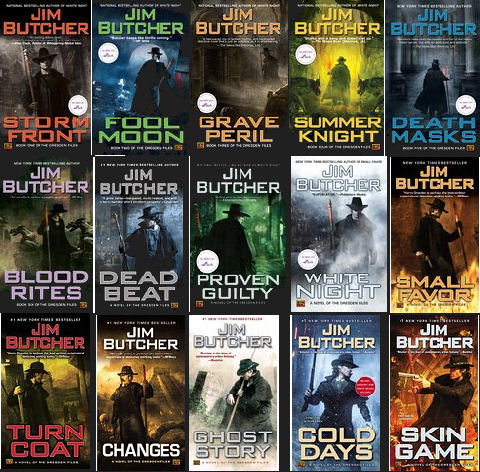The Book Stack #7

It’s been awhile, hasn’t it?! Let’s take a peak at a little of what’s come and gone on the reading pile.
The Sam Reilly Collection, Christopher Cartwright
A trio of books that follow a sort of vague, Indiana Jones-ish theme, if Indiana were a spoiled rich kid with a covert ops military background, a daddy with more money than the IMF, and an inexplicable talent for stumbling across the trails of mythical artifacts that are less the provenance of history than they are conspiracy theories on the deep web. Sam Reilly is ostensibly a marine biologist, though the topic of marine biology plays, at best, a sort of triggering event and then retreats into the background. Instead, it provides a tacit reason for placing his Batcave on the deck of an oceanographic research vessel. As I found in the book by Cartwright that I reviewed in my last round, Reilly and one or two other characters are such the focus of the writing that no one else really ever steps out of the shadows for more than a cameo appearance, and are immediately forgettable. The books are a quick, and fun read, sort of rollicking adventures following Reilly as he tracks down a long missing Nazi blimp in The Last Airship and discovers its true, deep, dark secrets, a mysterious ancient shipwreck that has become tied to a marine life destroying mining operation in The Mahogany Ship, and finally, the search for Atlantis in, well, Atlantis Stolen. Much of each volume is taken up with battles between the forces Reilly is able to muster using daddy’s money and those of daddy’s business rivals, making this feel at times like a bitch slap fest between Bill Gates’ and Carlos Slim’s children at a debutante ball. With guns. ☆☆☆
Haven Series, Carmen Webster Buxton
I’m not sure if two books constitutes a series, but so be it. Perhaps there are more to come. Two really well written books, The Sixth Discipline and No Safe Haven, that start from the premise that humans have “seeded” another world, and that the original settlers divided into factions, who’ve take different approaches to life. It comes down to a culture clash between those who’ve chosen a life close to and in tune with nature, including a separate faction of extremists, and those who’ve gone the citified and technological route. Both books are focused around the misadventures of Ran-Del Jahanpur, one of the nature folk, who is captured for purposes I won’t reveal here by one of the corporate titans of the techno folk, as he finds himself forced to adapt to the latter. Much of the storyline is spent on the struggle between the two cultures, and it’s an artfully drawn one, that ends up ensnaring people on both sides into its web. I enjoyed both books thoroughly, and hopefully the series continues! ☆☆☆☆
Forty Days at Kamas, Preston Fleming, May 11, 2015
What is our fascination with dystopian futures? I should probably just stop there and leave us all pondering. Now, when I read this, on someone’s recommendation, I didn’t know that it was intended to be the first of a trilogy. I’m going to say upfront that I have no intention, no interest, in reading the books that follow. It’s not that it wasn’t well written, it was. It’s not that it doesn’t have interesting characters, it does. It’s not that it doesn’t have a reasonably engaging storyline, it does. But you know what? It’s a downer. I suppose that’s part of the point of dystopian novels. The problem with this one is that, despite its moments of hope and triumph in a world where America has gone the route of totalitarian rule with labor camps and no room for political dissent (this was written well before our last election and its consequences, and I don’t think there was anything prescient about it), there’s nothing upbeat, even in those moments. There also doesn’t seem to be much in the way of the rest of the world – a few moments where things outside of the country are referred to, but really, it’s almost as if the globe outside of the USA has ceased to exist. It’s just a depressing, bleak future with no rays of sunshine. It reminds me in many ways of the TV series Colony, without the humanity, light, or humorous bits. ☆☆☆
China Mountain Zhang, Maureen F. McHugh, March 1992
I remember McHugh’s short stories from my avid reading of science fiction throughout the time she was writing. This was her first novel, of four, she was better known for her short stories. Mostly she wrote starting at the end of the 80s, on through the mid-90s, and then one novel and a few stories at the beginning of the 00s. As far as I know, she hasn’t written anything since 2003. And that’s a shame, because she’s a great writer. And, in fact, this was one of my favorite reads of 2016. In a sense, it’s the complete opposite of the previous book in this post, positing a future that, while not utopian, at the very least approaches our future with positivity. It’s a world where not only is there international interaction and cooperation, but that technology and humanity have moved forward, to bring out the best in people rather than the worst, both on Earth and Mars, where we’ve established a colony. The book follows the personal and work life of a young man on a voyage of self-discovery in a postrevolution world where the revolution made things better, not worse, for humanity. ☆☆☆☆☆
And that seems a good place to stop for the moment. There are more to come, and hopefully I’ll manage to keep this coming more regularly.
